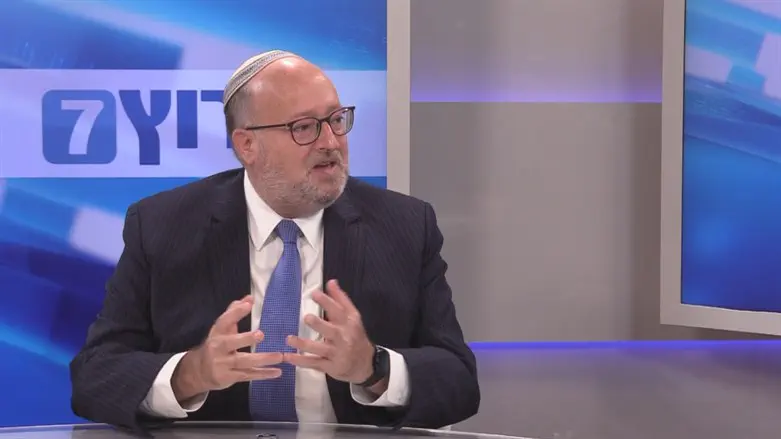
Rabbi Dr. Kenneth Brander is President and Rosh HaYeshiva of Ohr Torah Stone, Gush Etzio
“Hutar L’Pirsum.” ‘Cleared for publication.’ The words that break our hearts day after day, as the news updates make their rounds among the living. Once the media gag order - imposed to ensure that the families of the fallen are the first to be informed of what has happened to their loved ones - is lifted, the names of soldiers whose lives were taken are cleared for publication.
We rush to our devices, scroll through the names, and scan for familiar faces. If there’s no one we know on the list, we release an uncomfortable sigh of relief. But the relief is quickly overtaken by grief. Sure, maybe not anyone we knew directly. But many knew them. Many loved them. And their hearts and lives have just been shattered.
The experience of reading through the names has been especially poignant for me since last week, when we began reading Sefer Shemot, a book that opens with a striking absence of named characters. As the subjugation and enslavement of the Jewish people gets underway, we are told of an unnamed man from the house of Levi, who marries an unnamed woman, who leaves her unnamed baby in the Nile under the watchful gaze of his unnamed sister, until the unnamed daughter of Pharaoh finds the child, takes him home, and calls him Moshe. And even once the redeemer-to-be grows up and ventures out into the world, he continues interacting with nameless Egyptians and nameless Hebrews.
For Shemot begins with us living stateless, enslaved, in an existence where numbers, not names, matter.
All this takes a turn in this past week’s Torah portion, Va’era. The focal point of God’s appearance to Moshe is the revelation of the four-lettered divine name YKVK. Like all names of God, this name represents a singular aspect of His essence. In the case of YKVK, a name the Torah states that was not even revealed to Avraham, Yitzchak, and Yaakov, it is the ability for us as a people to be intimately connected with Him.
Our redemption begins when this Divine name is revealed to us, a name singularly representing the capacity for a Divine intimate relationship with the Jewish people.
Upon being bestowed with the YKVK name of God, with God announcing our chosenness and redemption, we move from a peripheral existence to one that has potential and purpose. Once God exalts his relationship with us as manifested through His personal name, our own personal names take on their full meaning, too. For every name represents the yearnings and dreams bestowed upon us by our parents, and the values and the ideals they wish for us to actualize through the decisions we make and the lives we lead.
As redemption begins, names become relevant and the Torah immediately begins to call out our human names: “These are the heads of their father’s houses: …” (Shemot 6:14). The anonymity of the opening stories of Sefer Shemot reflect the experience of slavery, a denial not only of the physical accommodations needed to lead a reasonable life, but of the dignity of individuality, upon which personal being, family and community are built.
But the story of the redemption begins with unleashing the energy represented in the name: the naming of Moshe, the naming of God, and immediately afterwards the genealogy of the Jewish people - in other words, our own naming. It is our names that give us aspirational character, individuality, and a story. To be someone to yourself, and to everyone around you.
One can see in the lists of names released by the IDF the full gamut of Jewish communities - first names and family names with origins in modern Hebrew, Arabic, Yiddish, Amharic, Russian, English, Ladino, and other languages spoken in the lands from which our people was regathered. With a name and a face, we can begin to conjure up an image of who the person was, the life they led, and the story they’ve left behind.
Just as discovery of the Divine Name is itself a form of revelation, the release of the names of the fallen opens up to us the inner worlds of those who have made the ultimate sacrifice so that we may live. Like the name YKVK brings God a little closer, reading the fallen names allows them to be revealed to us once more. It takes them out of their uniformed headshots into the plainclothes lives they led, with families and professions and hobbies and all that makes us who we are. It brings the fallen nearer, making them a little more real and making the loss all the more profound.
And just as we call upon the name of God, we call out these human names. We continue to recite the names of the hostages and the names of the wounded in our prayers, not losing sight of the individual people who make up our collective anguish.
While for now, in the middle of the war, we lack the means to fully redeem our fallen brethren by ensuring that their legacy lives on, we can at least begin the process and perform the partial redemption of remembering their names and stories, memorializing who each one was alongside their loved ones and communities, and carrying their names onwards.